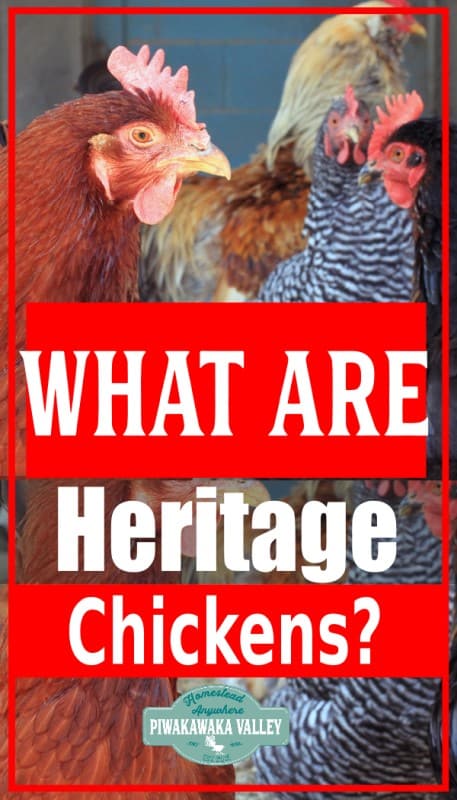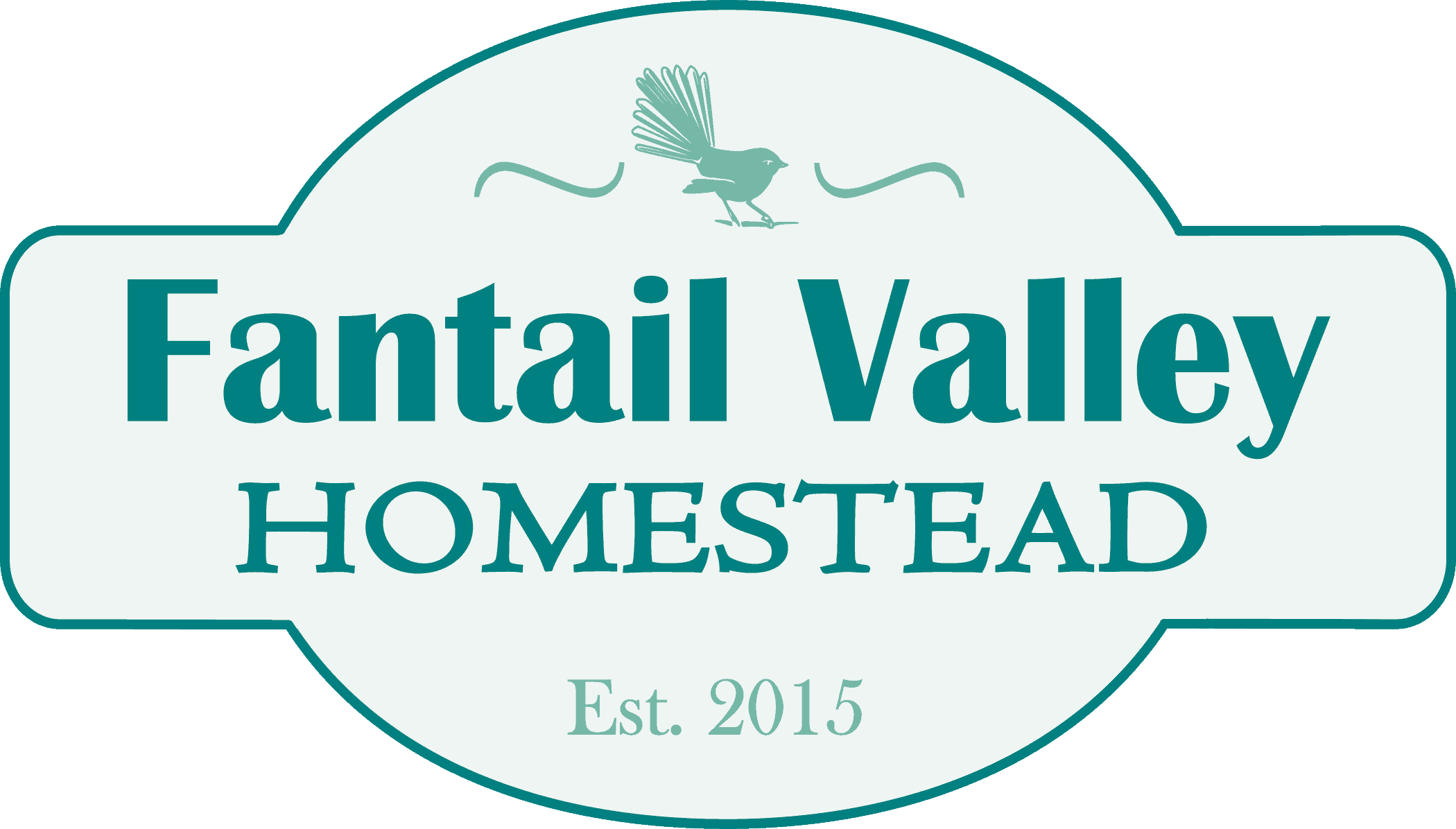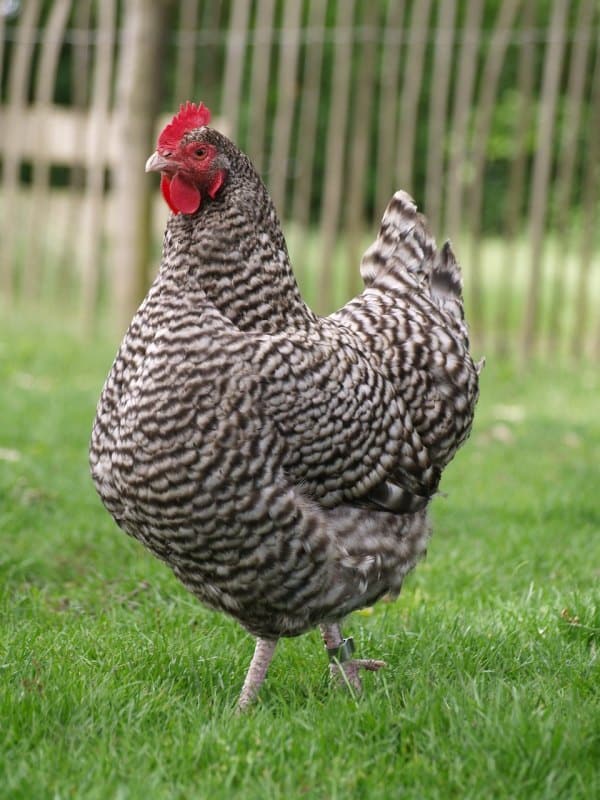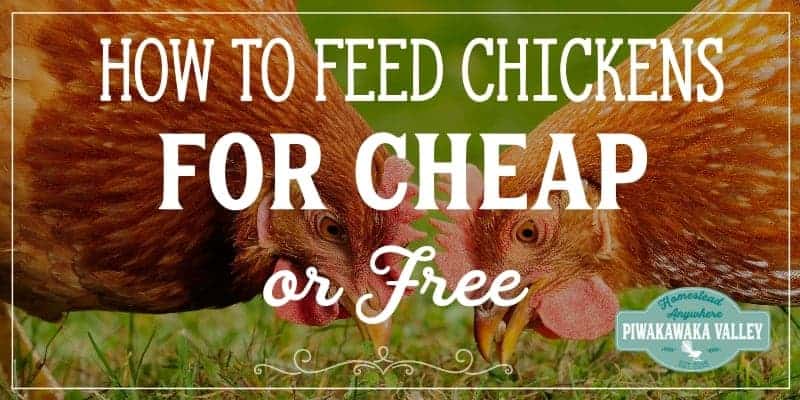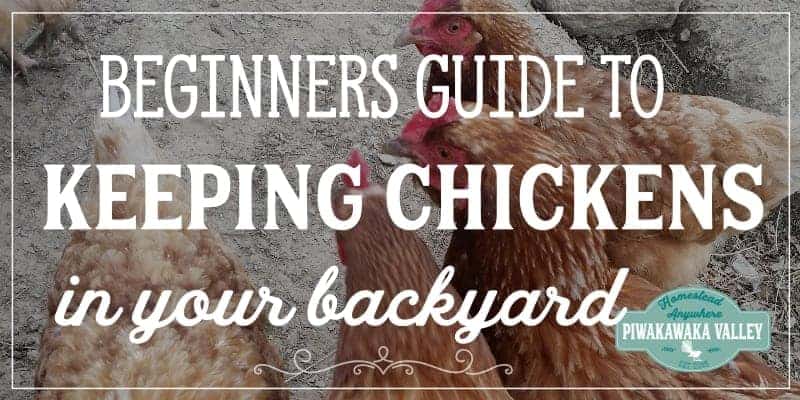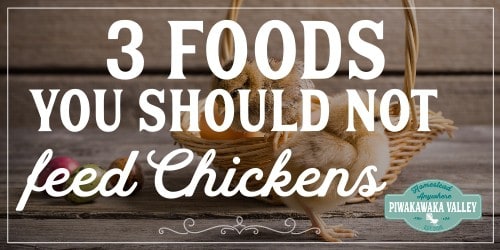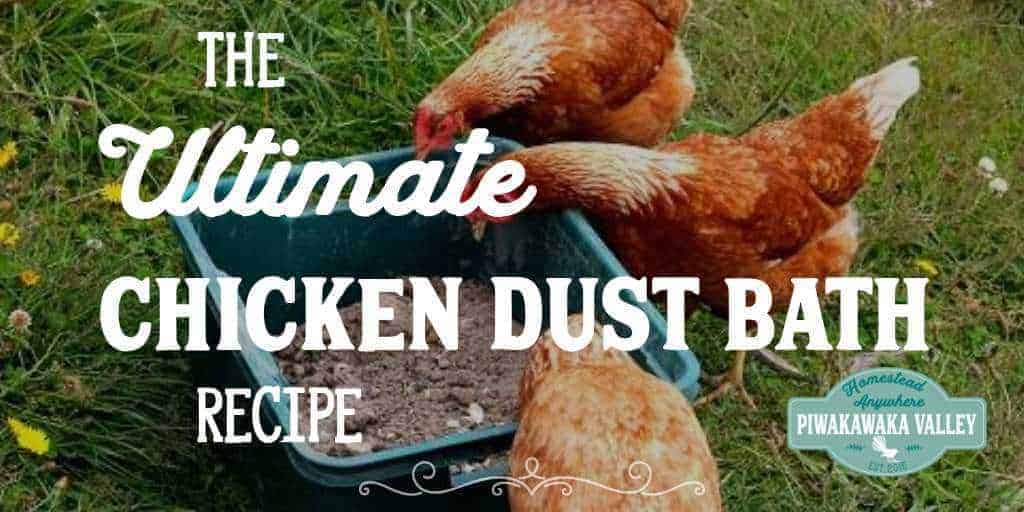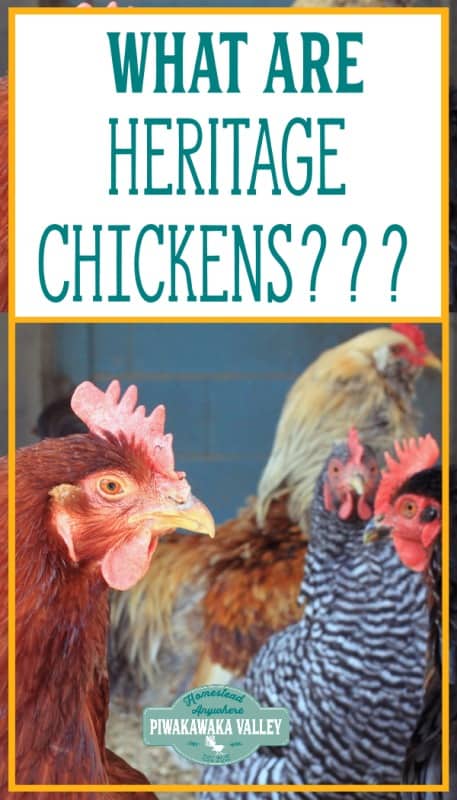This post was most recently updated on March 10th, 2021
If you are new to keeping chickens, chances are you will be wondering what breed or breeds of chickens that you should keep in your backyard. Heritage chicken breeds are popular with backyard chicken owners for many reasons, read on to find out more.
Please read: This information is provided for educational purposes only and is not intended to treat, diagnose or prevent any disease. We encourage you to make your own health care decisions in partnership with a qualified health care professional.
This post contains affiliate links, this means at no extra cost to you, we make a commission from sales. Please read our Disclosure Statement
What is a heritage breed chicken?
Heritage breed chickens have four characteristics:
- They were recognized as an American Poultry Association Standard Breed prior to 1950
- They are naturally mating
- They can live a long and productive life outdoors
- They have a slow growth rate
Heritage breeds are also referred to as heirloom chickens and are the older breed that have proven themselves over many many generations.
RELATED POST: 10 Best broody hen breeds
Why are heritage chickens good to raise?
1. They are well refined
Heritage chickens have been bred for many generations, working on improving the breed and making them more productive.
2. They are self replicating
One of the main criteria of being called a heritage chicken is that they must be able to naturally breed, without needing an incubator or a human raising the babies. This means that you can keep a small flock of hens and a rooster and you will have extra chickens each year to replenish or build your flock, or sell on to help pay for the chicken feed.
3. They love to forage
Heritage chickens are generally good foragers, which means they can get at least some of their food requirements from free ranging, which reduces your total feed bill.
4. They look interesting
Heritage breeds are certinally more interesting to look at than the common brown hybrid layer that all pretty much look the same. Heritage breeds come in a huge range of shapes, colours, patterns, feather styles and sizes.
5. They are friendly
Most heritage breeds have been bred to keep in a persons backyard with people, children and other animals. Generally, this means that they are more calm and friendly in disposition.
What is the best heritage meat chicken?
This is a common question asked by people wanting to raise their own meat birds sustainably. Commercial broilers cannot be bred at home and must be bought in each time from the hatchery.
Heritage chickens will not grow as fast as hybrid broilers will, however we had good success crossing a Light Sussex rooster over full sized (not bantam) Indian Game hens.
Light Sussex were used commercially as meat production birds before the Cornish cross or Cobb cross hybrids were developed. They grow exceptionally fast compared to other heritage breeds and grow to a large size.
They do not have the breast meat development like the commercial hybrids do, and to improve that you are best to cross in a game style hen like the Indian Game or Dorking.
If you don’t mind waiting for growth, Barred Plymouth Rock are even bigger birds than the Light Sussex, but slower to grow.
Orpingtons are often touted as good dual purpose breeds, however they are mostly floof and we have found they have very little meat on them.
RELATED: Best heritage dual purpose breeds
What is the best heritage laying chicken?
Heritage chickens were often bred for their laying capacity. Many that were once great layers are now more bred for looks and show rather than their ability to lay sadly.
A good heritage laying chicken will never lay as much in a year as a hybrid as the hybrid lines have had all their broodiness bred out of them, while heritage chickens should be able to reproduce naturally. This includes spending about 3 months of the year brooding and raising chicks.
The leghorn is probably the most productive heritage laying chicken and some lines were used as commercial layers right up until the invention of the hybrid laying bird.
Leghorns come as white or brown and will regularly lay 250-300 eggs per year.
RELATED POST: The best 20 heritage laying hens
Where can I buy heritage breed chickens?
If you have decided that you really would like to own heritage chickens in your backyard flock, be sure to be careful where you get your chickens from.
The first chickens you buy will become your foundation stock if you are planning on letting them breed, so it is really important to start off with good chickens.
Remember that your rooster is half of your whole flock’s genetics, so make sure you get one that is true to type, well mannered and physically healthy.
Visit your local poultry show to meet breeders and look at many types of breeds.
There are many private breeders, but there are also some larger, national hatcheries that sell certified Heritage Breeds like Meyer Hatchery, Murray McMurry Hatchery and Cackle Hatchery in the USA and Appleton’s in NZ.
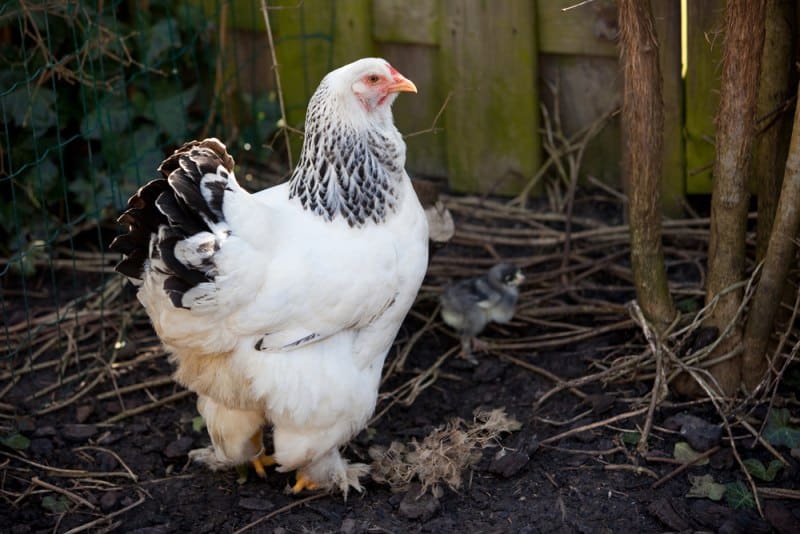
What is the difference between these terms in chicken breeds?
Pedigree Chickens
A pedigree animal comes with a copy of it’s pedigree. A pedigree should show at least the parents and grandparents of the animal in question and it is registered with a national body. These are the most expensive chickens, but should also be of the highest show standard quality.
Purebred Chickens
Purebred chickens are where both parents are also purebred, and of the same breed. However, they are not registered and will not come with paperwork outlining their heritage. Some breeders give you the option to register the animal and provide pedigree paperwork for an additional fee.
Some backyard breeders will offer purebred, but not pedigree stock.
Hybrid Chickens
Hybrid chickens are from strictly controlled lines. They breed the 4 grandparents lines, cross the lines to make 2 parent lines and then the resulting hybrid chicken is of a very specific type and are usually patented.
There are many types of hybrids world wide
The brown laying hybrid known as Brown Shaver or Hyline in NZ, Golden Comet and many others elsewhere in the world. They are the commercial laying chickens and will lay an egg a day from 6-24 months old.
There are also hybrid meat birds (aka broilers) that are white and grow to processing weight at about 8 weeks of age. In NZ we know them as the Cobb-Ross, in the US you can get Cornish cross or Freedom Rangers.
The hybrid chickens are bred to extremely high production standards and are the best at what they do. But you cannot keep and breed them, as their offspring will display different genes.
Heirloom or Heritage
As described above, heritage or heirloom chickens have been bred for generations to be good at laying, meat, or a bit of both. They come in a wide range of shapes and sizes but will always breed true to type.
Landrace Chickens
A landrace animal is one that has been bred to meet certain characteristics that are not looks. Usually, the breed looks like a flock of not related animals, but they will all have behavioral characteristics that they share. Icelandic chickens are a landrace breed, they have different shapes, sizes, colours and combs. However, they are all great layers, extreme foragers, wary of predators and very, very weather hardy.
Backyard or Farmyard Mix
A farmyard mix chicken is like what a landrace chicken would have been in their early days. It is when a bunch of different breeds are kept together over several generations, and the hens that are good at brooding and raising chicks will pass her genes on to the next generation.
Sex-linked Chickens
Some breeds of chickens give an obvious tell when they hatch if they are boys or girls. Hybrid layers are different colours when they are born, making a cheap and easy way for the breeders to cull out the roosters at a young age.
For example, you can create chicks that hatch with the girls with red-gold down and the boys with silver-white down, or it could be that the girls sex feathers up fast, with feathering beginning within a day of hatching, and slow with no feathering evident in the boys.
One of the most common methods uses Rhode Island Red roosters and Light Sussex hens, the girl chicks are pale brown and the boys are white.
What breeds we raise and our experience with them
Hybrid layers
We keep a large flock of 50 hybrid layers as we sell eggs within our community. We find them to be gentle, kind, calm, easy to keep, semi-good foragers and amazing layers. We do replace them every 2 years as their laying ability does slow down.
Light Sussex
I find our Light Sussex roosters to be kind and approachable, the hens are very good layers and seldom go broody. They are larger birds, so they do eat more and need more space in their cage. When crossed with an Indian Game we found they made a reasonable meat bird, but cannot compete with the Cobb for speed or size.
Orpington
I love the look of these fluffy, floofy birds. The girls are good layers, but our roosters have been mean as they are maturing, but they settled down after a year or two. For a meat bird, they are pathetic, they are all feather and bone.
Aracuna
Our Aracuna rooster is known as DeathStalker. He is mean. His hens on the other hand are lovely, gentle birds who regularly lay pretty blue-green eggs.
Welsummer
This was my first introduction to the Welsummer breed, and I am suitably impressed. Our hen is a good layer, she gives us an egg 6 or 7 days a week. The rooster is shy and standoffish but not vicious.
Barred Rock
Our rooster is HUGE, we had to make his doorway to the bed bigger, and he is HEAVY too. He is kind and gentle and his hens lay about 5 eggs a week for us.
Barnevelder
I love the look of these girls, we have both the black and the blue penciling on brown. They lay lovely medium sized eggs almost everyday. The roosters are wary but not mean.
Silkies
Our silkies are my children’s pets. Our hen isn’t a great layer, but she made an amazing mother. The rooster is friendly and sweet.
Mottled Cochin Bantam
These two are my daughters pets and she loves them and their tiny fluffy feet. They are terrible layers, but their job in life is to look pretty and they are happy with that.
Heritage chicken breeds and why they are better
Heritage chickens provide a great and diverse selection of colours, shapes, sizes, feather types and personalities. You can pick one for its laying ability, growth rate or both. No matter what your goal in chicken raising is, there will be a breed out there for you.
If you like tips on frugal living, self sufficiency and consuming less, sign up to our newsletter below, I would LOVE to have you!
What heritage chicken breeds do you have at your place? Share your chicken experiences with me in the comments below!
Please pin and share with your friends.
